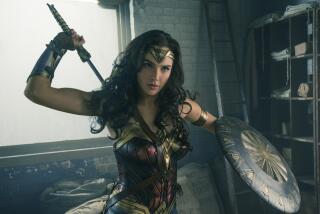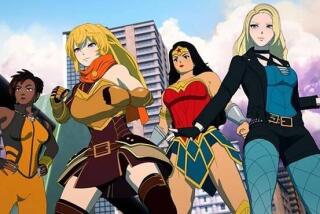Proposed Merger of DIC-Computer Memories Scrapped
- Share via
The proposed merger between DIC, the Burbank cartoon factory, and Computer Memories, the former computer-equipment maker in Chatsworth, has been scrapped.
The two companies originally announced plans to merge in December, as a way for DIC to go public. Neither side would comment Monday on why the deal was canceled, although the decision came just two weeks after a dissident Computer Memories shareholder, Sun Equities, disclosed it would try to block the merger.
For DIC, the collapse of the deal means it will lose an opportunity to go public cheaply and, more important, to receive a $25-million infusion of cash from Computer Memories’ bank account.
DIC, best known for producing such cartoons as “ALF” and “The Real Ghostbusters,” is believed to need the cash to help pay off some of its considerable debt, and to finance expansion plans.
A group led by DIC President Andy Heyward bought DIC in 1986 in a $65-million leveraged buyout that was backed by Prudential Insurance and Bear Stearns. In a leveraged buyout, a company borrows money to buy a company and typically pays it off through cash generated by the company and through the sale of assets.
The scuttling of the DIC deal also marks the second time in three months that a merger with Computer Memories has fallen apart.
A previously announced agreement last fall with Hemdale Film Corp., which backed the Academy Award-winning movie “Platoon,” fell through because of a legal dispute Hemdale was having at the time with Vestron over the videocassette rights to “Platoon.”
Computer Memories has been looking for a merger partner since 1986, a year after it was dropped by IBM as a supplier of disk-drive data-storage equipment for its PC-AT personal computer.
Computer Memories is essentially a shell company and, although its stock continues to trade, it has no ongoing business. The company auctioned off most of its assets in 1986.
It is considered an attractive merger candidate because if a private company merged with Computer Memories, it could assume the latter’s status as a public company--especially attractive since the stock-market crash crippled the market for initial public stock offerings.
Had the deal with DIC gone through, Computer Memories shareholders would have received a one-third stake in the merged company.
However, Paul Koether, a Far Hills, N.J., investor who heads Sun Equities, said he was pleased that the DIC deal fell through. Koether had opposed the DIC merger from the start because the animation industry is suffering from a product glut and, he said, he was concerned about DIC’s high debt.
Koether, whose group owns about 10% of Computer Memories stock, put pressure on the company to scrap the deal by agreeing last month to pay $3.5 million for the 15% stake held by Intel Corp., Computer Memories’ largest shareholder. That would boost Sun Equities’ stake in Computer Memories to about 25%.
He said Computer Memories executives did not tell him why the merger was called off, and he refused to speculate on whether it was because of the pressure his group put on the company.
Koether said there are numerous private companies looking for a public company like Computer Memories to merge with. He said attractive businesses include defense, financial services and environmental services such as water purification and waste management.






